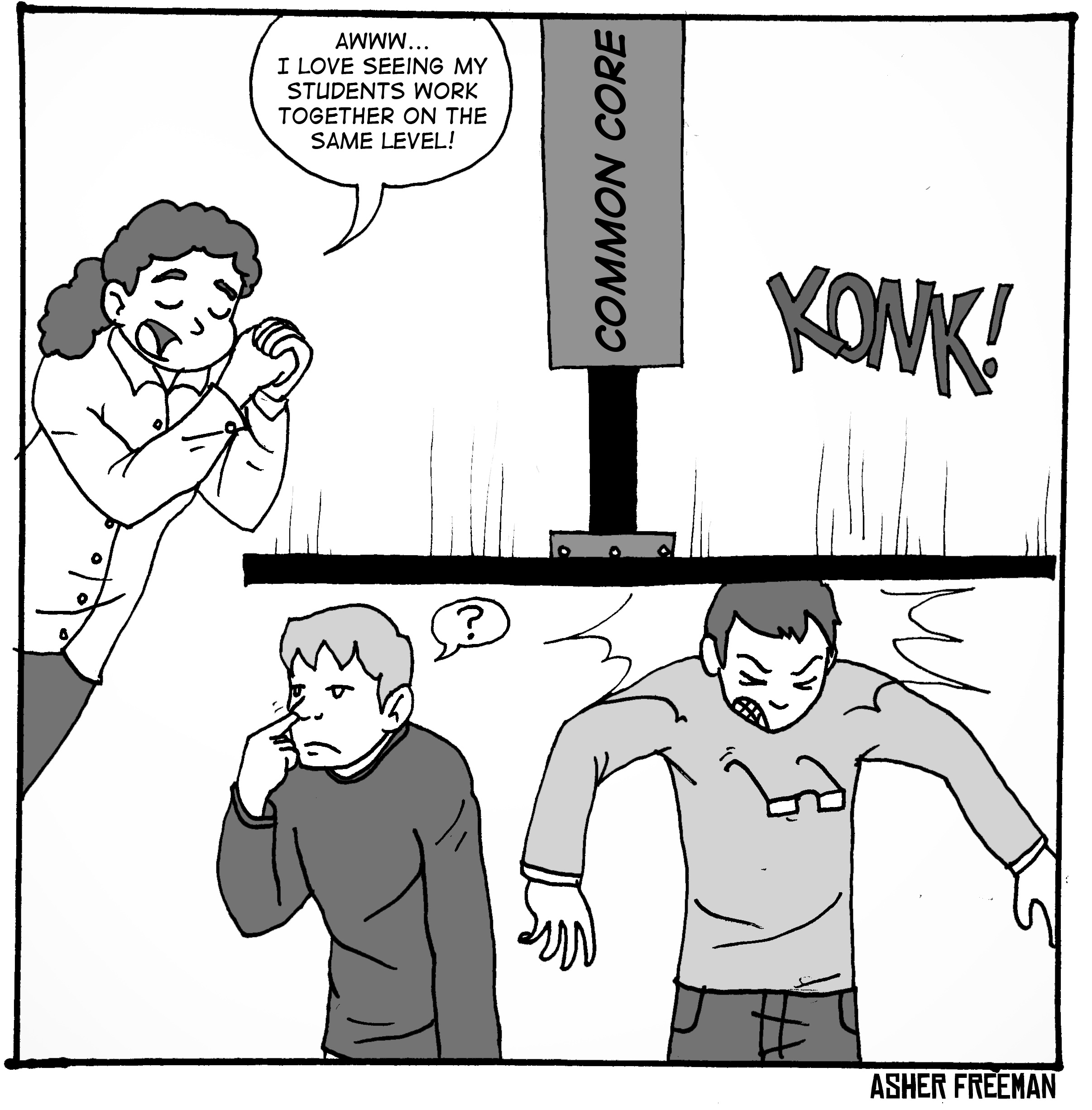Thinking back to our K-12 years, it is easy to think about the diverse types of students we crossed paths with — some of the students were the “nerds” and some were not quite as smart. To combat this, many states have started implementing the Common Core approach to education.
This method asserts that there are certain skills student should learn at each grade or age level. Schools under this Common Core teach their students no more and no less than what is dictated by the curriculum.
This is an issue on two fronts. Students learn at differing paces and in different ways, and the Common Core completely does away with both aspects. There should not be a ceiling when it comes to K-12 education.
There is no one-size-fits-all approach to education. Student A is going to learn at a different pace than Student B.
As bad as it sounds, there are always going to be students who rise to the top of the class and there are always going to be students who fall short and are unable to succeed on pace with their peers.
There is nothing wrong with that, but there is something wrong with asking the student who is obviously ready for advanced coursework to wait while other students catch up.
There is an old saying, “Use it or lose it.” And that definitely applies here. Take a student who exhibits great study habits from a young age and is able to comprehend information at the level of students several years older.
Is it fair to ask them to not utilize those skills and instead be limited to material they deem simple to keep everyone at the same level? The fact of the matter is students do not all perform at the same level.
IQ exists and it makes no sense to try to perpetuate an all-students-have-equal-intelligence mentality.
If the student is not given the opportunity to utilize their study skills, they’ll forget them or, even worse, not learn them and be hurt later when they actually need them.
Some students need to go to magnet schools in order to further their education in a very specific way.
Under Common Core, public schools would not be allowed to have specialized, accelerated education because it would be against the Common Core theory.
Using the Common Core approach, students are learning technique for subjects such as math in a way completely different from how their parents or even their siblings learned them. And they’re being forced to use only that approach.
For example, several weeks ago a post from a father frustrated with the common core went viral. He was helping his child with a common core math worksheet on subtraction.
He wrote, “Dear Jack, I have a Bachelor of Science degree in Electrical Engineering which included an extensive study in differential equations and other higher math applications. Even I cannot explain the Common Core mathematics approach, nor get the answer correct. In the real world, simplification is valued over complication. Therefore, 427-316 is 111. The answer is solved in under five seconds — 111. The process used is ridiculous and would result in termination if used.”
Students look at subjects in many different ways. This is not something that needs to be discouraged, but students should be encouraged to find a method that makes sense to them and is easy for them to remember and stick to it.
The Common Core gets one thing right, though, and that is minimum standards at each grade level for students.
This ensures that students moving on to the next grade level are able to do the work that will be asked of them, but there should not be a ceiling to a child’s education, especially while they’re growing up and developing the study skills they will carry with them to college and beyond.
The Common Core approach is not a bad one, but it should not be the only way to educate students. Many states are beginning to take the Common Core approach out of their education and Texas never accepted it in the first place.
Other states should continue phasing out the Common Core approach in order to ensure students are being educated to their potential and that students are learning in a way that best suits them.






